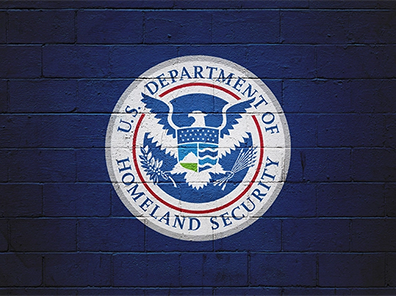
On October 18, 2023, the U.S. Department of Homeland Security (DHS) announced that it created a new parole program to allow certain nationals from Ecuador to skip the line to enter the United States ahead of all other green card-eligible aliens who must wait outside the country for an immigrant visa to become available. The program is the fifth unauthorized parole program set up by the Biden administration specifically aimed at “family reunification” for aliens who are currently inadmissible to the United States. In July, the Biden administration extended similar parole benefits to inadmissible aliens from Colombia, El Salvador, Guatemala, and Honduras who have relatives in the country.
In order to be eligible for parole under this program, nationals from Ecuador must demonstrate that they are a beneficiary of an approved Form I-130, Petition for Alien Relative, in addition to meeting other requirements. In other words, applicants must already be in line to be considered for a family-based green card, but, unlike similarly situated green card applicants from other countries who are subject to the waitlist, Ecuadoran beneficiaries who receive parole under this program will not have to wait outside the United States for one to become available.
Moreover, a beneficiary may only apply for parole if their petitioner (i.e., their relative in the United States who petitioned for them to receive the green card) receives a “written invitation” from the Department of State’s National Visa Center. DHS announced that these invitations are subject to 12-month deadlines, suggesting that the government intends to use the invitation system as a method of “metering” who may apply in order to reduce the strain on USCIS — the already strained agency charged with administering the legal immigration system, including parole and all derivative work authorization applications.
The program is a part of the Biden administration’s general strategy to obscure the mass illegal immigration crisis by allowing nationals from countries with high rates of illegal border-crossers to apply for parole using DHS’s CBP One app and fly directly to the United States rather than attempt to enter the United States illegally. Aliens who have been granted parole are eligible to apply for work authorization in the United States, and those who are approved will receive Social Security numbers (that do not expire).
Indeed, the number of inadmissible Ecuadorans encountered in the border region has spiked in recent years, but most drastically during the Biden administration. For FY 2023, Border Patrol reported encountering a total of over 98,000 inadmissible Ecuadorans in the Southwest land border region. This is a drastic increase from FY 2022, when Border Patrol reported a total of 23,944 encounters. While FY 2021 numbers were also unusually high (95,1692 encounters), encounters of Ecuadorans have historically been relatively low. For example, Border Patrol reported just 1,513 total encounters of Ecuadorans in FY 2017 and 1,613 in FY 2018 nationwide. Between FY 2008 and FY 2020, annual encounters averaged 3,900, but that annual average drops down to 2,323 encounters if you take FY 2019 and FY 2020 out of the equation (which were considered “crisis” years and experienced 13,198 and 11,952 total encounters respectively).
The demographics of the Ecuadorans arriving to the United States illegally has also significantly changed in recent years. Family unit arrivals now exceed the number of single adults crossing the border, and the numbers of unaccompanied alien children (UACs) arriving has risen dramatically as well. This may be attributable to the same pull factors that have led to increased numbers of families and unaccompanied alien children arriving from other countries — specifically the loopholes in the credible fear process that allow for these groups to be promptly released into the United States, as well as carve-outs included in the Biden administration’s asylum restriction regulation that give some family units a pass.
Data recently obtained by CIS reveals that the Biden administration, in the past year, has already allowed at least 221,456 inadmissible aliens to fly into the United States and obtain parole under these unauthorized programs. (Inadmissible aliens who are not nationals of these countries may still use CBP One to enter the United States with parole, but they must schedule an appointment at a land port of entry in the Southwest land border region to do so.) This number does not include the overwhelming majority of inadmissible aliens who have entered the United States since 2021 because they received parole at land POEs.
DHS, however, has not yet provided an estimate of the number of inadmissible Ecuadorans who may be eligible for parole under this new program or its legal argument to justify granting parole to this group in the first place. As my colleagues and I have written about extensively this year, the parole statute only affords DHS limited authority to parole aliens into the United States. Each individual grant of parole must be made on a “case-by-case basis” for “urgent humanitarian reasons or significant public benefit”, which is why granting parole in a programmatic fashion raises serious legal concerns.
The statute is also clear that parole is only supposed to provide temporary authorization to enter the United States and must be terminated when the urgent humanitarian or significant public benefit purpose it is supposed to serve has been completed. Historically, DHS has interpreted “urgent humanitarian reasons” as “urgent medical, family, and related needs” and “significant public benefit” as limited to situations limited to “persons of law enforcement interest such as witnesses to judicial proceedings”. The Biden administration has clearly abandoned this interpretation.
